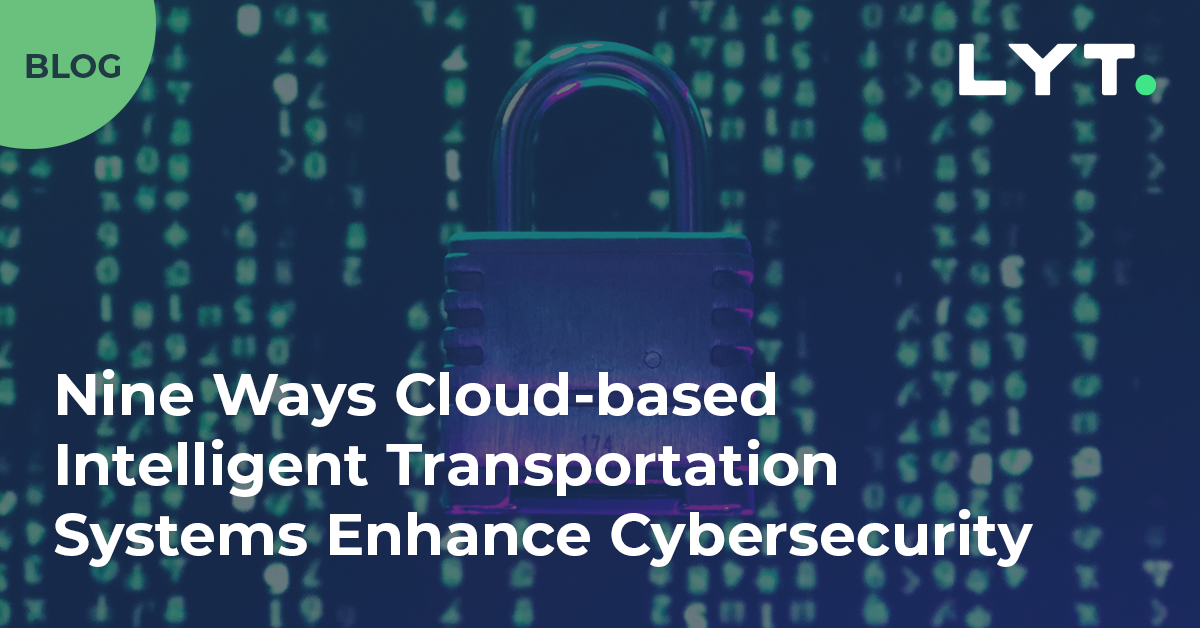In today’s interconnected world, transportation systems are becoming increasingly reliant on advanced technology. From smart traffic management to autonomous vehicles, these innovations promise to make transportation safer, more efficient, and environmentally friendly. However, with great technological advancements come great cybersecurity responsibilities. In recognition of Cybersecurity Awareness Month, let’s explore why cloud-based intelligent transportation systems (ITS) are often more secure than their hardware-based counterparts.
Understanding Intelligent Transportation Systems
Intelligent Transportation Systems (ITS) encompass a wide range of technologies and applications designed to improve the efficiency, safety, and sustainability of transportation networks. These systems use data and communication technologies to monitor and manage traffic, control traffic signals, provide real-time information, and even enable autonomous vehicles to navigate the roads.
Traditional Hardware-Based ITS: Vulnerabilities and Challenges
Historically, ITS solutions have relied heavily on hardware components such as sensors, cameras, and control units deployed on the road. While these systems have undoubtedly improved traffic management, they come with several inherent cybersecurity challenges:
- Outdated Software: Embedded software in hardware devices can become obsolete quickly, making it difficult to stay up to date with cybersecurity patches.
- Vulnerability to Physical Attacks: Physical infrastructure is susceptible to vandalism, theft, and other forms of damage.
- Maintenance Complexity: Hardware components need regular maintenance and updates, which can be challenging when systems span large geographic areas.
- Limited Scalability: When security is installed or updates are needed, hardware-based ITS often requires significant investments of time and effort to ensure security measures are set up properly on each device. Additionally, expanding or upgrading these systems can be costly and time-consuming.
Why Cloud-Based Intelligent Transportation Systems Are More Secure
- Scalability: Cloud-based ITS solutions are inherently more scalable, allowing security measures to be deployed quickly. Cloud providers have the infrastructure and resources to accommodate growing demands, making it easier to expand and adapt systems as needed without major capital investments.
- Enhanced Security Protocols: Reputable cloud service providers implement robust security measures, including encryption, firewalls, and intrusion detection systems, to protect data and applications.
- Frequent Updates: Cloud-based systems benefit from automatic software updates and security patches, reducing the risk of vulnerabilities due to outdated software. These updates and patches can often be deployed as soon as they become available or frequently scheduled releases.
- Geographic Redundancy: Cloud providers often have data centers in multiple regions, offering geographic redundancy to ensure system availability even in the event of a localized disruption.
- Data Backups: Cloud services typically include data backup and recovery solutions, safeguarding critical information against loss due to hardware failures or cyberattacks.
- Advanced Authentication: Cloud-based ITS can employ multi-factor authentication and identity management systems to enhance access control and protect against unauthorized access.
- Cybersecurity Expertise: Cloud providers have dedicated teams of cybersecurity experts who continuously monitor and respond to emerging threats, providing a high level of expertise and security vigilance.
- Remote Management: Cloud-based ITS can be monitored and managed remotely, reducing the need for on-site personnel and minimizing exposure to physical attacks.
- Cost-Efficiency: Cloud-based solutions often have a lower total cost of ownership compared to hardware-based ITS, as they eliminate the need for extensive capital expenditures and reduce ongoing maintenance costs.
Conclusion
As we celebrate Cybersecurity Awareness Month, it’s crucial to recognize the pivotal role that cloud-based intelligent transportation systems play in enhancing the security of our transportation networks. While traditional hardware-based ITS have their merits, cloud-based solutions offer a more scalable, secure, and cost-effective alternative.
Transportation authorities and organizations should consider the advantages of cloud-based ITS not only in terms of cybersecurity but also in their ability to adapt to rapidly evolving technology landscapes. By embracing cloud-based solutions, we can help ensure that our transportation systems remain resilient, efficient, and, most importantly, secure in the face of evolving cyber threats. Learn more about how LYT’s cloud-based open-architecture solutions can elevate your city’s transportation infrastructure.



